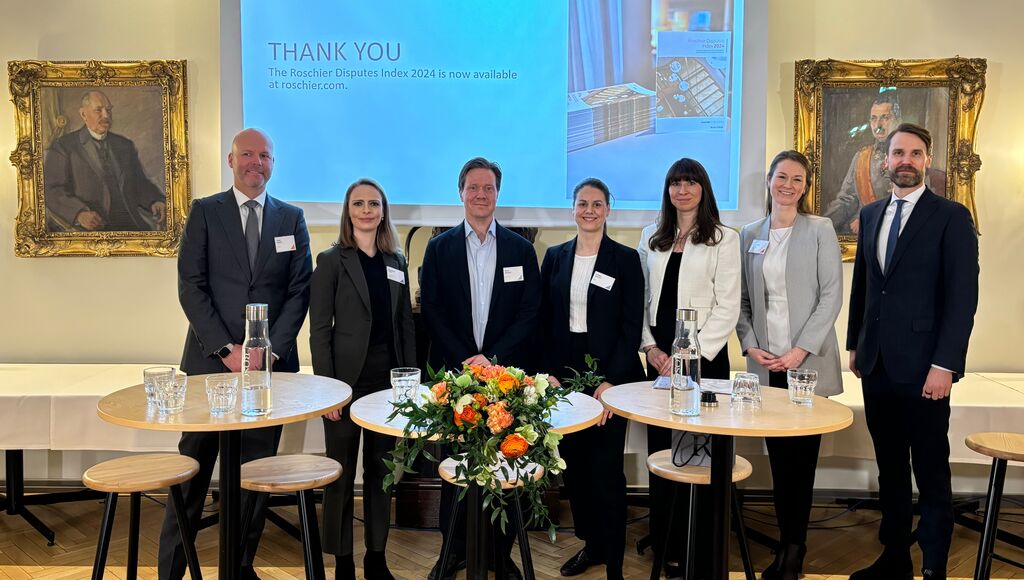
Roschier Disputes Index 2024 – key takeaways
Insights|March 12, 2024
The seventh edition of the Roschier Disputes Index was launched on Monday 11 March. The index looks at prevailing practices and trends in dispute resolution in the Nordics.
The launch was held as a hybrid event in Helsinki. After the welcoming words from our host, Aapo Saarikivi (Roschier), the findings were presented by Annika Pynnä Lindskog (Roschier).
Lindskog highlighted the ‘Swedish triumph’ when it comes to choosing preferred foreign arbitration rules. The results show that, if their home institute could not be used, most respondents (55%) would choose the Swedish SCC Arbitration Institute. The Swedish law was also the preferred applicable law for international contracts when respondents could not choose their own domestic law. In this year’s survey the Swedish law also regained its first place from English law, which ranked highest in 2021.
Among other findings were that even though virtual elements have become more of a norm, nearly all respondents wanted to at least have a part of their hearings held in person. Lindskog concluded that this seems to indicate that Nordic companies still see both the dispute itself and being present at court as important.
After the presentation our invited panelists discussed their views on the findings. The panelists this year were Madeleine Thörn (SCC), Ulrikke Størseth (Hydro Havrand), Henri Hätönen (Outokumpu) and Johan Sidklev (Roschier). The panel was moderated by Nika Larkimo Husa (Roschier).
Størseth pointed out that the Norwegian preference for litigation stems from the domestic nature of disputes, the high cost associated with using the ICC, and the comparatively shorter processing times in Norwegian courts compared to other Nordic countries. Thörn and Sidklev agreed, noting that court processes in Finland and Sweden can take years, making arbitration a much-preferred option. Hätönen stated that, based on his experience, the choice between litigation and arbitration doesn’t typically involve a case-by-case evaluation but rather depends on the type of industry or agreement. As examples of sectors that tend to prefer litigation, he mentioned agreements connected to banking, insurance, or public entities.
The discussion and event ended with questions and comments from the audience. One comment was from the perspective of an arbitrator, noting the upsides of digital tools but emphasizing a better understanding of the case during live hearings. Another comment related to whether the data indicates which dispute resolution method is most prone to settlement. Although this question wasn’t directly studied, the panel acknowledged it as a topic that should be explored in future indexes.
We would like to thank all the panelists and participants for a very interesting discussion.